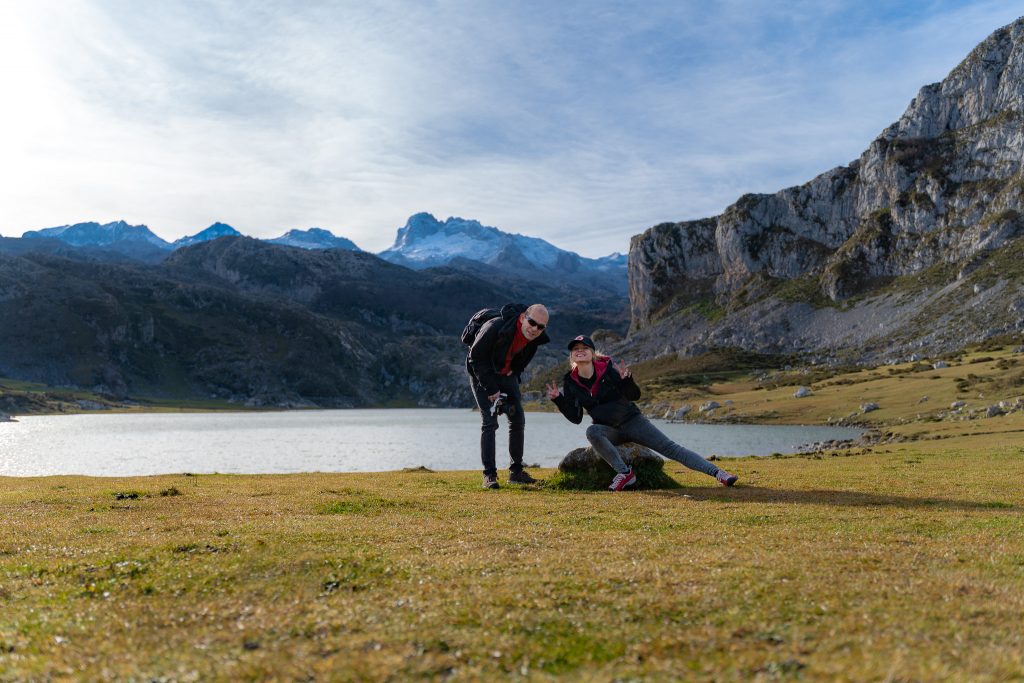The post-COVID world left many opened doors for those who want to work remotely and travel the world long-term. Those who don’t want to be chained to the office chair 5 days a week for 8 hours straight and waste time commuting, now have more freedom than ever before. But, however great it all sounds, this lifestyle isn’t only sunshine and rainbows, flexibility and freedom.
In this post, we’ll share with you our strategies, tips, and tricks on how to work remotely and travel long-term. How to combine both and not burn out quickly even if you’ve never done it before. Try them, and set yourself up for success at remote work during long-term travel.
Everything you’ll read is based on our, so far, 2 years of experience traveling the world full-time as digital nomads and slow travelers. We “did the switch” almost at the end of the COVID rollercoaster and before that, we were “regular office 9-5ers”. To this day we don’t see any signs of any kind of burn out and it seems like we could do this indefinitely.
Note. In this post you won’t find tips on searching for remote jobs, how to become a digital nomad, prepare for long-term travel or what travel pace is the best one. So if you’re looking for such information check out our other posts.
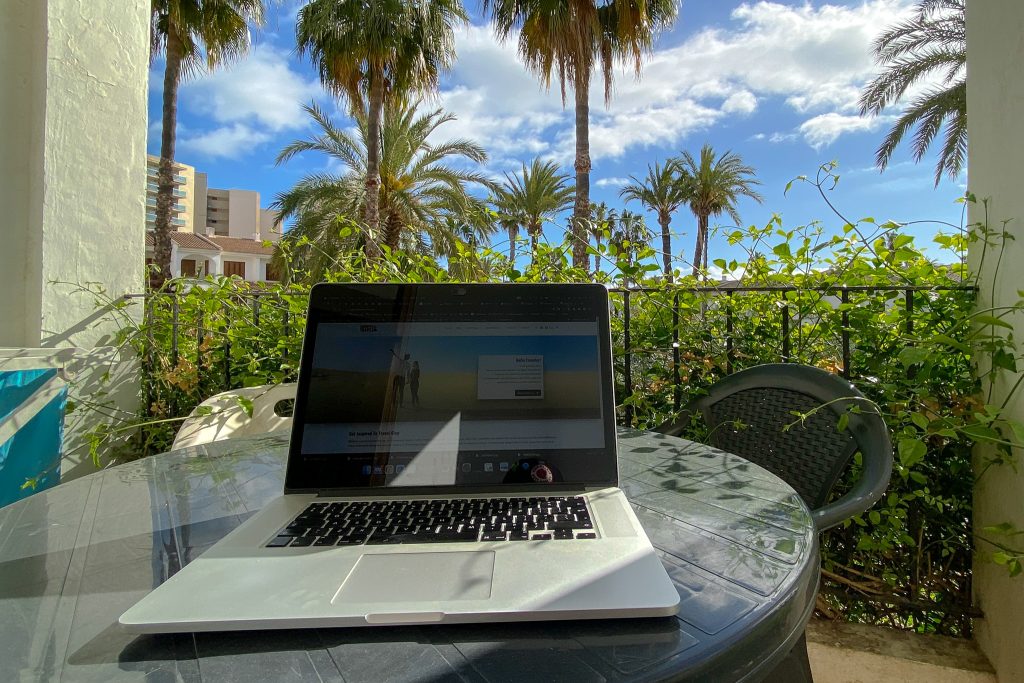
This website uses affiliate links thanks to which we may earn a commission for purchases you made at no additional cost to you. If you like the content, consider using those links to support us. Thank you!
How to work remotely and travel long-term? Tips & tricks
You took your dream remote job and newfound freedom out into the world and… Suddenly your daily routine breaks down. Temptations to explore and try everything are everywhere. Lines between job and traveling begin to blur and you no longer know if you’re on vacation or at work…
Finding a balance between remote work responsibilities and traveling can be a tough nut to crack, especially at the beginning when everything is new. But this balance is key to a successful, long-term digital nomad journey. And you’re about to learn how to balance it out.
Establish a routine
Wherever in the world you are, it’s important to establish and stick to a daily routine. It helps tremendously with balancing remote work, travel, and life. Set regular working hours, and times for meals, hobbies, exercising, sleeping, sightseeing, or whatever you want. And stick to those hours, the best you can.
When you’ll be able to do it effortlessly it will help you stay productive, complete all work assignments, and you’ll have more time for pleasure. Also, whatever routine you’ll choose, make sure that you can stick to it even when you switch places. It needs to be applicable anywhere so you won’t need to build new habits each time you move.
Plan your work & prioritize tasks
Effective time management is crucial for remote workers. To maximize productivity you need to plan your work and prioritize tasks. Make a list of all the tasks that have to be done each week, break them down into smaller ones, make the most important a priority, and set daily/weekly goals. You can use productivity tools, like Notion, to stay organized and keep track of your tasks, priorities, and deadlines. But in general, whatever works for you is the best. There is no point in forcing yourself to use any tool if it just doesn’t click. Just focus, finish your tasks quickly, and you’ll have more time to explore the world!
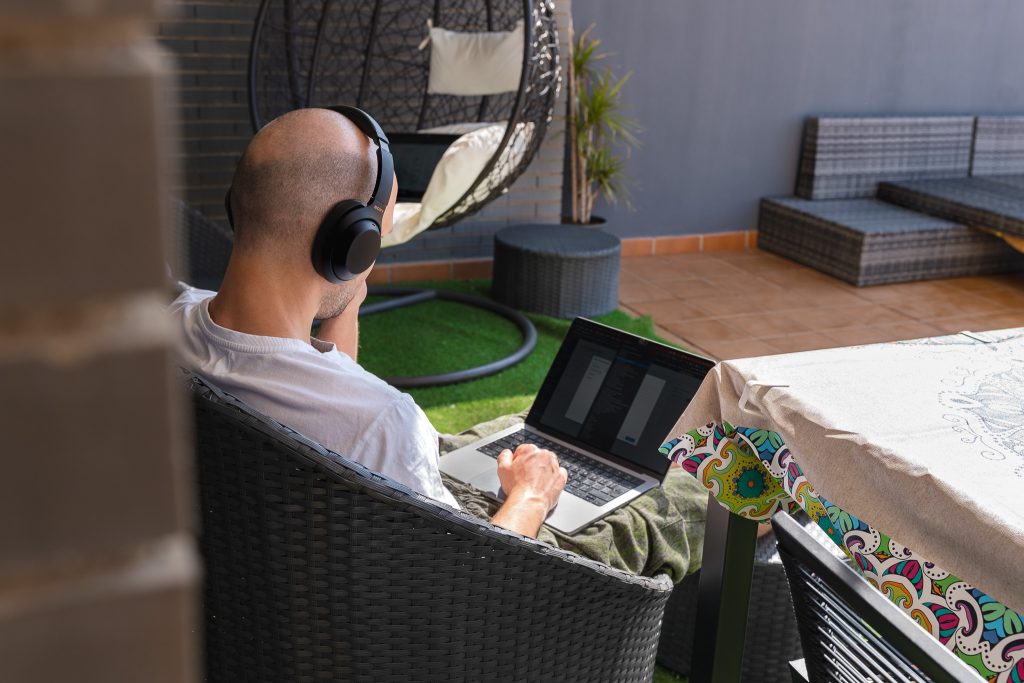
Read this before you'll mix work and travel:
Limit distractions
Social media channels, news and gossip websites, videos on YouTube, games, or even cleaning the apartment… Sometimes everything else is more interesting than tasks that have to be finished. That’s why you should try your best to limit all the distractions. How? Just use them in specific timeboxes. But if you have troubles with that, there are various blocker applications available like StayFocusd, RescueTime, or Forest that block access to selected websites and social media for a certain period of time, effectively keeping you away from browsing the internet.
Invest in the right tech equipment
Having the right tech equipment is also very important for efficient remote work during long-term travel. You don’t want to tear your hair out getting annoyed with a slow laptop taking up your precious time, right? Invest in decent and reliable equipment that you need for work – laptop, phone, camera, batteries, chargers, headphones, SD drivers, etc… Anything you might need. It’s better to pay a bit more for quality stuff and worry less about it breaking down in the middle of the work when it’s needed the most.
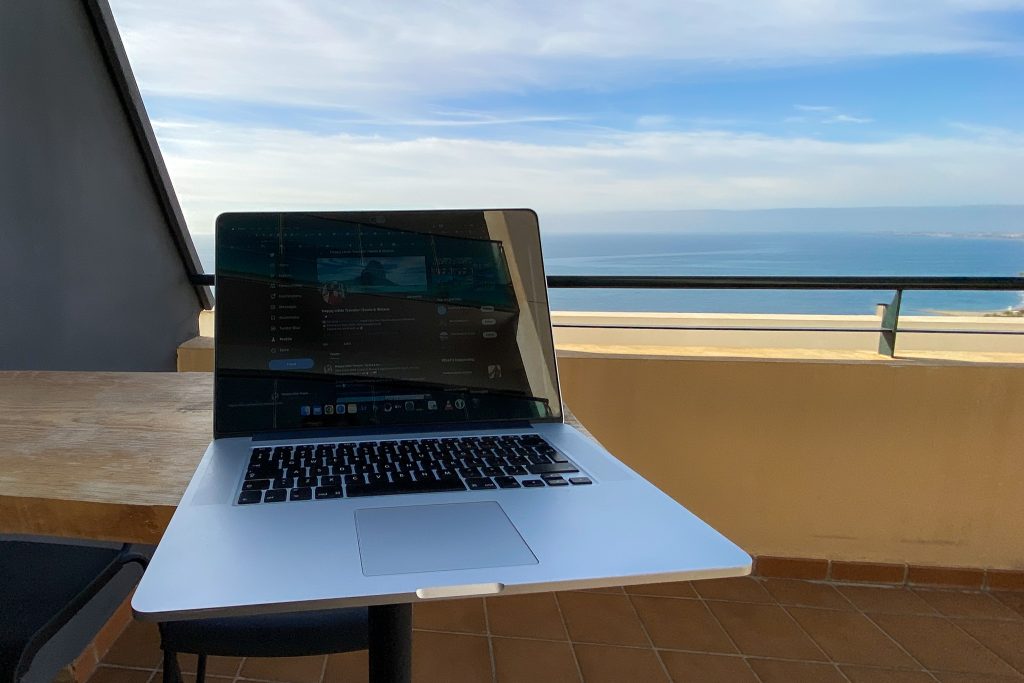
Make sure you’ll stay connected
When your work is entirely internet-based, a lack of a stable internet connection could be a huge issue. To limit the time being offline it’s always good to be prepared as best as you can. First of all, you’ll need to choose your travel destination, as well as accommodation wisely. Many countries offer good internet connections, but in some, you might find it hard to get connected with the world.
If you’d like to visit more remote or exotic places, do proper research on how you’ll connect from there. The best way is to ask the owner about the available connection type and its speed (stating that there is WiFi available is not enough) and verify it by reading reviews. From our experience, it’s best if you’ll have the possibility to hook up your own router with ethernet cable to the existing network.
Regardless of the place, always have an alternative way of connecting, just in case. For example, know where are the places that offer public Wifi or have a backup data SIM card. Also, always make sure that your connection is secure, especially in public areas. You can use VPNs like Surfshark or NordVPN to bump up your security and privacy in those cases.
Separate the workplace from the place of relaxation
Separating the workplace from “me time” place also might come helpful in relation to productivity and work-life balance. If possible, in each place you’ll be living, choose one spot for work and a second where you’ll be relaxing and taking care of your personal stuff. It could be as easy as switching chairs, rooms, or devices you’re working on. Just separate the work context from the rest. You’ll find it easier to focus and get into the zone to accomplish more in a shorter time.
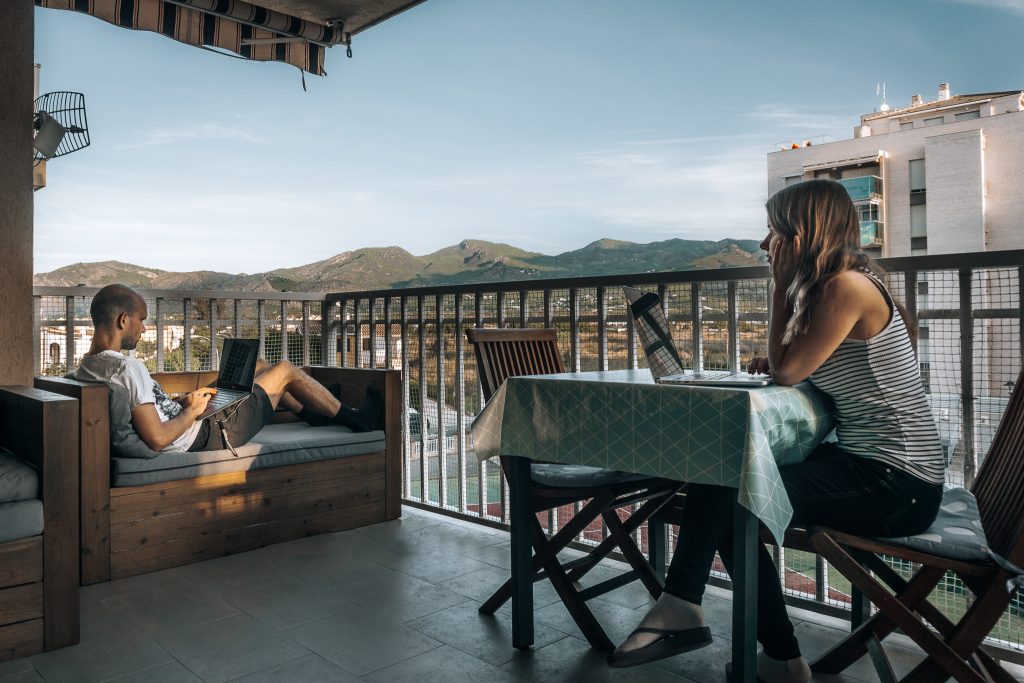
Delegate tasks
At some point, you might want to hire some help and delegate some tasks to achieve even more and/or free more time to do fun stuff. What tasks can you delegate? Anything that you are OK with letting somebody else do it. It adds a bit of an overhead of managing this setup but it could be worth it.
Let’s say you’re a blogger – in that case, you might want to hire a copywriter that will do some research and will prepare post templates or hire a virtual assistant that will take care of administrative tasks, like handling emails, scheduling appointments, or even taking care of social media.
Reserve some time for self-care
In all this remote working and traveling long-term, don’t forget about time for yourself. However exciting this lifestyle may be, it also can be stressful, tiring, and overwhelming. Each day allocate some time to relax. It could be anything you like. Take a walk, exercise, visit new places, watch movies, read a book, go to the cinema or restaurant, meditate – whatever works for you and will take your mind off work.
Don’t push yourself too hard as you might experience burnout quite fast. Take a break if you feel like you need it, go to sleep if you’re tired, don’t go on a next trip if you don’t feel like it, have a quiet time if you feel overstimulated, and contact your doctor if you feel depressed, anxious or can’t deal with some emotions. Also, don’t forget about eating healthy, and don’t rely too much on takeaways. Remember that maintaining good physical and mental well-being is essential for a successful digital nomad lifestyle.
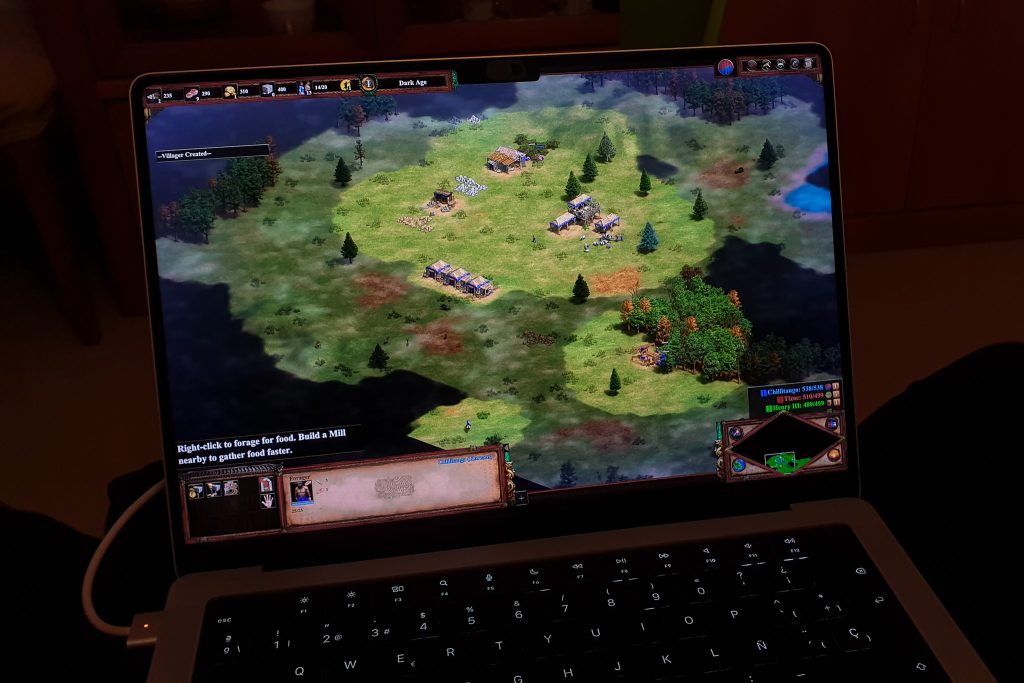
Embrace slow travel
As happy and fulfilled slow travelers and digital nomads, we feel obliged to write about it too. Slow travel will allow you to easily combine remote work with long-term travel. Thanks to staying in one place for a few weeks, you’ll have plenty of time for working, exploring the area, and for yourself. You’ll be able to feel at home.
Slow travel also helps to keep a daily routine, which is harder to maintain during traveling fast. More pros? More money for you and your adventures, as booking long-term accommodations is usually much cheaper than short stays! There are plenty more and we wrote a few posts about that already. Check them out if you want to find out more.
How to work remotely and travel long-term? – Summing up
Making dreams of traveling the world come true, and being able to work remotely is an amazing feeling. We hope that our tips will help you prepare to create the fulfilling and successful digital nomad lifestyle you want. Establish your routine, plan your tasks, stay organized, manage your time well, and never forget about your well-being… All of that will help you work remotely and travel long-term and will set you up for success at work and in life, no matter where your adventures take you.
